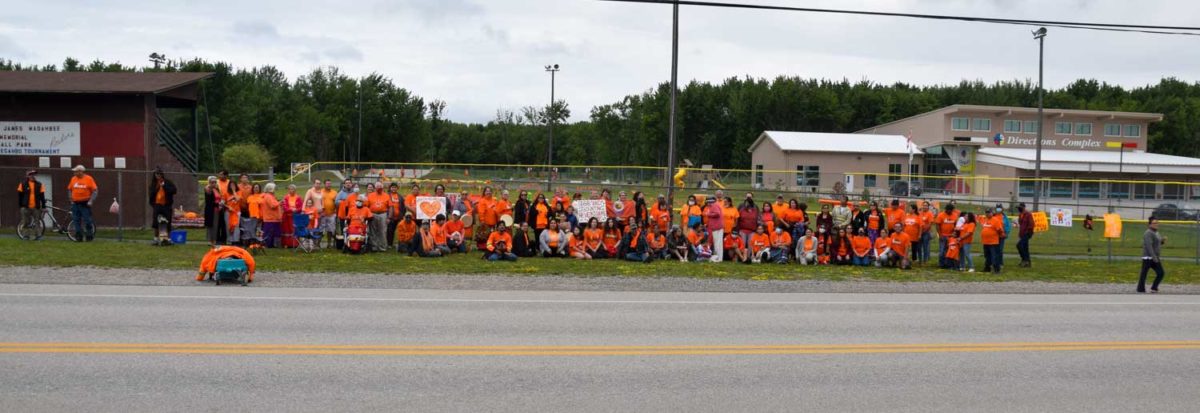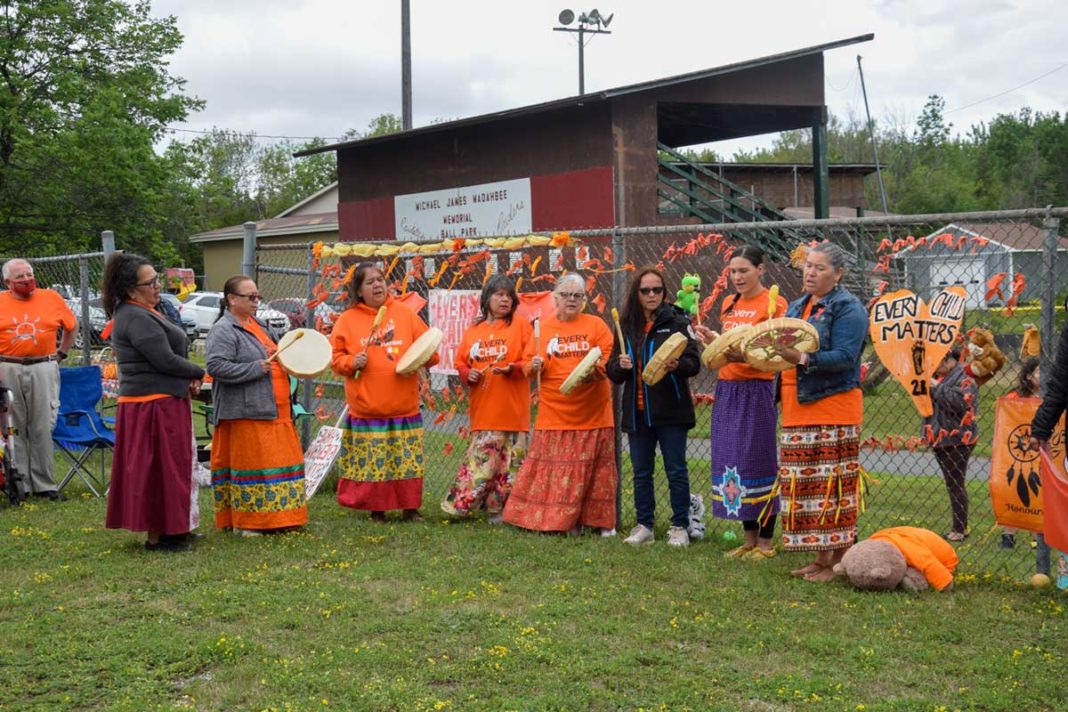AUNDECK OMNI KANING—A sea of orange T-shirts gathered beside the ballpark in Aundeck Omni Kaning on July 1 to memorialize the children who were lost while attending residential school. News of the discovery of unmarked graves near the sites of residential schools across the nation cast a sombre shadow on what is normally a day of national celebration.
“Right now we are very proud that a lot of the municipalities on Manitoulin Island are standing in solidarity with all the First Nations,” said Aundeck Omni Kaning Ogimaa-kwe Patsy Corbiere, before introducing the day’s speakers.
Residential school survivor Elaine Nahwegahbow provided a prayer to open the proceedings and then spoke briefly of her experiences at residential school. Her sister Georgina Nahwegahbow spoke at greater length about experiences at the Spanish Residential School.
Both Nahwegabows noted that their experiences at residential school were not the horrific tales that have been reverberating across the national consciousness in recent years.
“I was only there for three years, I went there after 1952,” said Ms. Nahwegabow. “I think the sisters were more civilized by then.”
“I went there, not being forced to go, I wasn’t grabbed by an Indian agent,” she said. “My mother went to residential school and she didn’t have a bad time.” In the time before integration of the school systems, the residential school was the only place to get a high school education, she said. “We were only 50 miles away. My parents came to visit me often.”

Still, she learned from her friends already attending the school to watch out for the ‘strap lady.’
“I stayed out of her way,” she said. Although she managed to avoid getting in any kind of trouble for the most part, she did get in trouble once. “My punishment was to go and take a bath, so it wasn’t so bad,” she said. “But it made me feel like I was a dirty Indian. The message was there and I heard it.”
She and some friends had slipped away from school to attend a dance in Shawanaga and they pooled their money for the taxi. In the end, her father got wind of the escapade and came to fetch her home from the dance. Although she did not get to dance, her friends did.
She recalled a tiny little girl who had transgressed in some manner. The nuns forced her to eat her dinner underneath the tables. “I could hear her crying as she ate her supper,” recalled Ms. Nahwegahbow.
Before and after the ceremonies, which included a smudge, members of the community and visitors tied medicine bundles, stuffed animals and posters to the ballpark fence—items commemorating the lost children.
Following the talks by the residential school survivors, a ladies’ hand drum group sang an honour song for the children who did not return from residential schools—those who did not survive one of Canada’s darkest moments in history.





